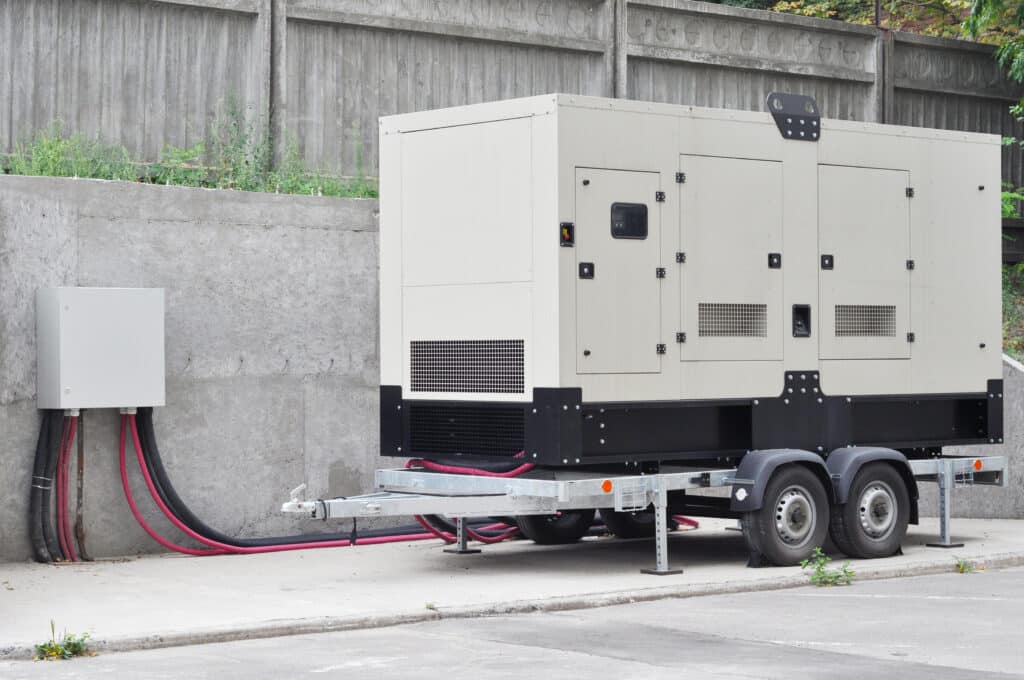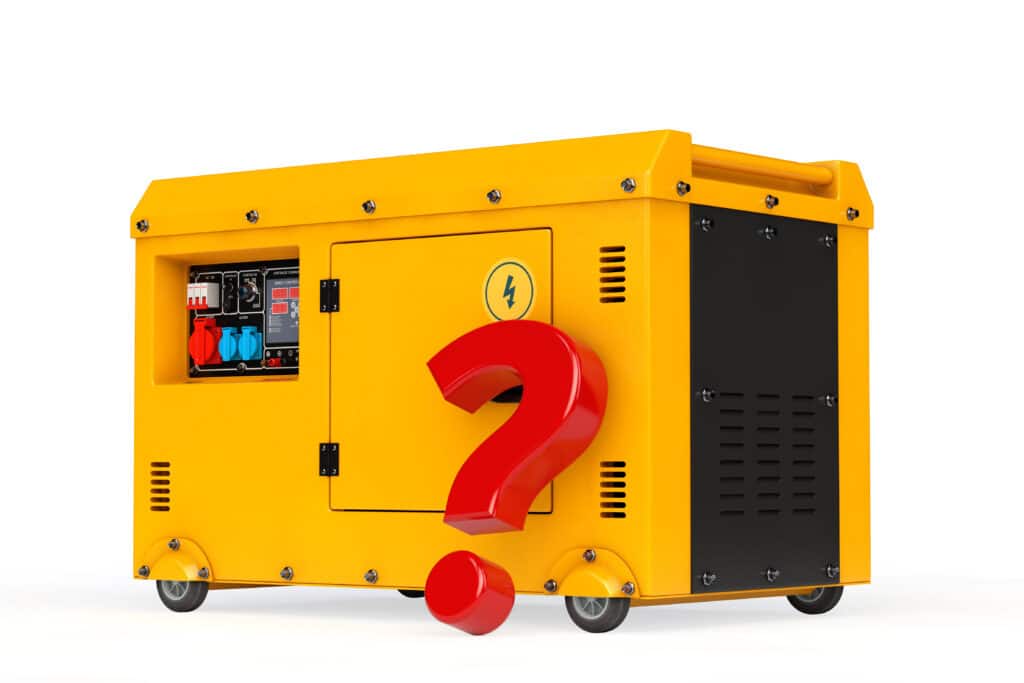Ensuring Uninterrupted Power and Peace of Mind
Are you prepared for the next power outage with reliable backup power solutions?
Reliable backup power solutions are essential for ensuring that both homes and businesses can continue operating smoothly during unexpected power failures.
Power outages can cause significant disruptions, impacting everything from home comfort to critical business operations.
In this guide, we will explore various backup power solutions, their benefits, and why they are crucial for residents and businesses in Wilmington, DE.
Whether it’s a standby generator, portable unit, or solar-powered system, having a backup plan in place ensures that you are never left in the dark.
Maintaining productivity and security during outages.
Types of Backup Power Solutions
Standby Generators
Standby generators, such as those from Generac, provide a seamless and automatic solution for power outages.
These generators are permanently installed and connected to your home’s electrical system.
They run on natural gas or propane and are designed to activate within seconds of a power outage.
This ensures a continuous power supply without the need for manual intervention, keeping your essential systems and appliances running smoothly.
Standby generators are ideal for maintaining home comfort and business operations during extended outages, providing peace of mind and reliability.
Portable Generators
Portable generators offer a flexible solution for temporary power needs.
These units are mobile, allowing them to be used in various locations as required.
Typically powered by gasoline or diesel, portable generators are perfect for short-term outages and can support essential appliances and devices.
They are especially useful for outdoor events, camping, or as a backup during emergencies when immediate power restoration is needed.
Although they require manual setup and operation, their mobility and versatility make them a valuable addition to your backup power arsenal.
Solar Power Systems
Solar power systems with battery storage, like the Huawei iSitePower-M, present a sustainable and independent energy solution.
These systems capture excess solar energy generated during the day and store it in batteries for use during power outages.
This reduces dependence on the grid and provides a reliable power source even when the sun isn’t shining.
Solar power systems are environmentally friendly and can significantly lower energy costs over time.
They are ideal for those looking to invest in renewable energy and achieve long-term energy independence.
Hybrid Power Systems
Hybrid power systems integrate multiple energy sources, such as solar panels, batteries, and traditional generators, to maximize efficiency and reliability.
These systems are designed to automatically switch between available power sources based on demand and availability, ensuring a steady and uninterrupted power supply.
By combining renewable energy with conventional power sources, hybrid systems offer the best of both worlds, providing sustainable energy solutions without compromising on reliability.
They are suitable for a wide range of applications, from residential homes to large commercial operations.

Benefits of Backup Power Solutions
Uninterrupted Power Supply
Backup power solutions are designed to keep your home or business running smoothly during power outages, ensuring that essential systems and appliances remain operational.
This uninterrupted power supply is crucial for several reasons:
Maintaining Productivity: For businesses, downtime can result in significant financial losses.
Backup power ensures that operations continue without interruption, allowing employees to remain productive and avoiding costly delays.
This is particularly important for industries where even a short power outage can disrupt workflows and affect service delivery.
Ensuring Security: Security systems, including alarms and surveillance cameras, rely on a constant power supply.
Backup power systems ensure these critical security measures remain active, protecting your property and assets even during an outage.
Comfort and Convenience: For homeowners, backup power means that daily activities can continue as usual.
Essential appliances like refrigerators, heating and cooling systems, and lighting remain functional, providing comfort and safety for your family.
Energy Independence
Installing a backup power system provides a level of energy independence that frees you from relying solely on the grid.
This independence offers several benefits:
- Control Over Energy Needs: With a backup power system, you can control when and how your energy is used. This is especially beneficial during widespread outages or scheduled load shedding, where the power grid is intentionally turned off in certain areas to prevent overload.
- Reliability During Emergencies: Natural disasters and other emergencies can cause extended power outages. Backup power systems ensure that you have a reliable power source during these critical times, providing peace of mind and stability.
Protection of Sensitive Equipment
For many businesses, the sudden loss of power can cause damage to sensitive equipment and lead to significant data loss.
Backup power systems offer protection in several ways:
Preventing Data Corruption:
Computers, servers, and other digital equipment require a stable power supply to function correctly.
Sudden outages can corrupt data and disrupt ongoing processes. Backup power ensures these systems remain operational, protecting valuable data and maintaining business continuity.
Safeguarding Hardware:
Repeated power interruptions can cause wear and tear on electronic components, leading to premature failure.
A reliable backup power system reduces the risk of hardware damage, extending the lifespan of your equipment and reducing maintenance costs.
Environmental Benefits
Backup power solutions, particularly those involving renewable energy sources, offer significant environmental benefits:
Reducing Carbon Footprint: Solar and hybrid power systems utilize renewable energy, reducing reliance on fossil fuels and lowering greenhouse gas emissions.
This supports broader environmental sustainability efforts and contributes to a cleaner, healthier environment.
Long-term Cost Savings: While the initial investment in renewable energy systems can be high, they often lead to long-term savings.
By reducing or eliminating monthly energy bills, these systems can pay for themselves over time, offering a financially sustainable option for both homes and businesses.
Implementing Backup Power Solutions in Wilmington, DE
Assessing Your Power Needs
The first step in implementing a reliable backup power solution is to assess your power needs.
Understanding the specific requirements of your home or business ensures that you choose the right system.
Begin by identifying the critical systems and appliances that must remain operational during a power outage.
These might include refrigerators, HVAC systems, medical equipment, and essential electronics.
To calculate the total energy consumption, list each device’s wattage and estimate the duration each will be used during an outage.
This will help you determine the total power capacity required for your backup system.
Consulting with a professional, such as those at Mister Sparky of New Castle County, DE, can provide a more accurate assessment tailored to your specific needs.
Choosing the Right System
Selecting the appropriate backup power system involves considering several factors, including power capacity, fuel type, and installation requirements.
Here are some points to consider:
- Power Capacity: Ensure the system can handle the total wattage of all essential devices and systems.
- Fuel Type: Decide between natural gas, propane, diesel, or renewable sources like solar energy.
- Installation Requirements: Consider the space available for installation and any specific requirements for different types of systems.
Installation and Maintenance
Proper installation and regular maintenance are crucial to the reliable operation of backup power systems.
Here are the key steps involved:
- Professional Installation: Ensure your backup power system is installed by certified professionals. This guarantees that the system meets all safety standards and operates efficiently.
- Routine Maintenance: Schedule regular inspections and maintenance to keep the system in optimal condition. This includes checking fuel levels, testing the system, and performing any necessary repairs.
A well-maintained system ensures longevity and reliability, providing peace of mind during power outages.
Mister Sparky’s team of professionals offers comprehensive installation and maintenance services to ensure your system functions perfectly when needed.
Cost Considerations
The cost of backup power solutions varies widely based on system type, capacity, and installation complexity.
Here are some factors to consider:
- Initial Investment: While solar and hybrid systems might have higher upfront costs, they can offer long-term savings through reduced energy bills.
- Operational Costs: Consider the ongoing costs of fuel and maintenance. Systems running on natural gas or propane might be cheaper to operate compared to diesel generators.
- Financing Options: Look into financing options that can make the initial investment more manageable. Many providers offer flexible payment plans to help spread out the cost over time.
Future Trends in Backup Power Solutions
Advancements in Technology
The landscape of backup power solutions is continuously evolving, driven by technological advancements and increasing demands for reliable energy sources.
Key trends that are shaping the future of backup power include:
- Smart Grids and IoT Integration: The integration of Internet of Things (IoT) technologies with backup power systems is revolutionizing energy management. Smart grids enable real-time monitoring and control of power usage, optimizing energy distribution and reducing waste. This technology allows homeowners and businesses to manage their power consumption more efficiently, ensuring that backup power is used effectively during outages.
- Battery Technology Innovations: Innovations in battery technology are significantly enhancing the efficiency and capacity of backup power systems. Lithium-ion batteries, for instance, offer higher energy densities, longer lifespans, and faster charging times compared to traditional lead-acid batteries. Future developments in solid-state batteries and other advanced storage technologies promise even greater improvements in reliability and performance.
- Renewable Energy Integration: The push towards renewable energy sources is leading to more hybrid power solutions that combine solar, wind, and traditional power generation methods. These systems are designed to maximize energy efficiency and sustainability, reducing the environmental impact of backup power solutions. Advances in solar panel efficiency and wind turbine technology are making these options more viable and attractive for both residential and commercial use.
Enhanced User Experience
The user experience of backup power systems is also improving, thanks to advancements in user-friendly interfaces and smart technology:
Remote Monitoring and Management: Many modern backup power systems now offer remote monitoring and management capabilities.
Users can access real-time data on their power usage, system status, and performance through mobile apps and online platforms.
This allows for proactive maintenance and quick responses to any issues that may arise, ensuring that the system is always ready to provide power when needed.
Automated Maintenance and Diagnostics: Advanced diagnostic tools and automated maintenance features are becoming standard in high-end backup power systems.
These tools can predict potential issues before they become critical, schedule maintenance tasks automatically, and even contact service providers for repairs.
This reduces the burden on users to manually manage their systems and ensures optimal performance at all times.
Choosing the Right Backup Power Provider
Evaluating Providers
Selecting the right provider for your backup power solution is crucial to ensure reliable service and support.
Here are key factors to consider when evaluating providers:
Reputation and Reviews:
Research the reputation of potential providers by reading customer reviews and testimonials.
Look for companies with a proven track record of reliability and excellent customer service.
Online reviews and ratings on platforms like Google, Yelp, and the Better Business Bureau can provide valuable insights into the experiences of other customers.
Service Offerings:
Ensure that the provider offers a comprehensive range of services, including installation, maintenance, and emergency support.
A full-service provider can handle all aspects of your backup power system, from initial consultation to ongoing maintenance and repairs.
This ensures that you have a single point of contact for all your power needs.
Expertise and Certification:
Verify that the provider’s technicians are certified and have the necessary expertise to install and maintain your backup power system.
Proper certification ensures that the technicians are knowledgeable about the latest technologies and safety standards, providing peace of mind that your system is in capable hands.
Customized Solutions
A good backup power provider should offer customized solutions tailored to your specific needs.
Here’s what to look for:
Personalized Assessment:
The provider should conduct a thorough assessment of your power requirements, taking into account your unique circumstances and preferences.
This includes evaluating your energy consumption patterns, identifying critical systems, and recommending the most suitable backup power solution.
Scalability Options:
Choose a provider that offers scalable solutions, allowing you to expand your system as your needs grow.
This is particularly important for businesses that may require additional power capacity in the future.
Scalable solutions ensure that your investment remains relevant and capable of meeting your evolving power needs.
After-Sales Support:
Reliable after-sales support is essential for maintaining the performance and longevity of your backup power system.
Ensure that the provider offers comprehensive support services, including regular maintenance checks, troubleshooting, and emergency repairs.
A provider with a strong after-sales support system can help you avoid downtime and ensure continuous power availability.
Conclusion
Reliable backup power solutions are essential for ensuring continuity and security for both homes and businesses.
Understanding the different types of systems available and their benefits allows you to make an informed decision to protect your operations against power outages.
Mister Sparky of New Castle County, DE, is committed to providing expert guidance and top-quality installation services to help you achieve energy reliability in Wilmington, DE.
Protect your home or business from unexpected power outages with a robust backup power system tailored to your needs.
Do you have any additional questions or insights to share? Let us know in the comments!

FAQs About Backup Power Solutions
-
What are the different types of backup power solutions available?
There are several types of backup power solutions, including standby generators, portable generators, solar power systems with battery storage, and hybrid power systems. Standby generators provide automatic power during outages, portable generators offer mobility and flexibility, solar power systems utilize renewable energy, and hybrid systems combine multiple energy sources for optimized efficiency.
-
How do I determine the right backup power system for my home or business?
To determine the right backup power system, start by assessing your power needs. Identify critical systems and appliances that need power during an outage and calculate their total energy consumption. Consider factors such as power capacity, fuel type, and installation requirements. Consulting with a professional, such as those at Mister Sparky of New Castle County, DE, can help you make an informed decision.
-
What are the benefits of installing a backup power system?
Installing a backup power system ensures an uninterrupted power supply, providing energy independence and protecting sensitive equipment from damage. It also offers environmental benefits by reducing reliance on fossil fuels and lowering carbon footprints. Moreover, backup power solutions can enhance the value of your property by providing reliable power during outages.
-
How often should I maintain my backup power system?
Regular maintenance is crucial for the reliable operation of backup power systems. It is recommended to schedule maintenance at least once a year, or more frequently if the system is used regularly. Maintenance tasks include checking fuel levels, testing the system, and performing any necessary repairs.
-
What are the cost considerations for backup power solutions?
The cost of backup power solutions varies based on the type of system, power capacity, and installation complexity. Initial investment costs can be high, especially for solar and hybrid systems, but they offer long-term savings through reduced energy bills. Operational costs, such as fuel and maintenance, should also be considered. Many providers offer financing options to help manage the initial investment.










